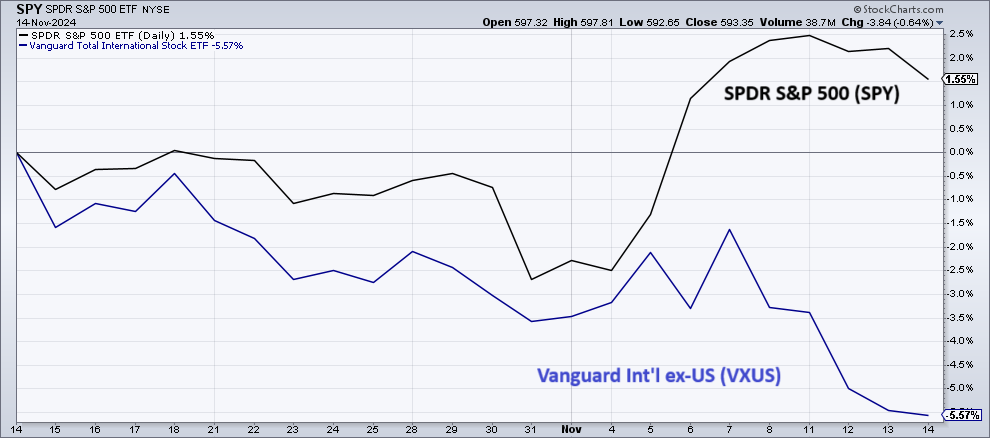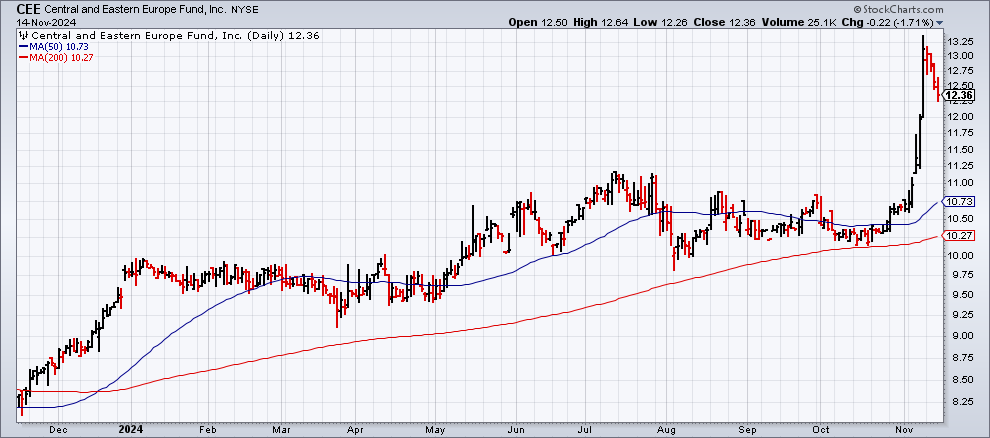Trump’s Return Jolts Markets: US Stocks Shine While Global Shares Stumble
2024.11.15 09:16
The election victory has fueled a strong rally in US equities, but Donald Trump’s comeback is seen as a new risk factor elsewhere as Washington prepares to pivot to the new edition of an “America First” policy.
There’s plenty of uncertainty about the details of Trump’s policy plans, such as imposing new tariffs on imports, but for the moment the equity markets are voting in no uncertain terms, based on a set of ETFs as proxies for the world’s major equity regions.
The latest surge in US shares has widened the lead for {{525|SPDR ETF}} (SPY) in the global horse race year to date.
SPY is up 26.0%, a hefty premium over the global stocks ex-US (), a fund that’s taken a hit recently and is now higher by just 6.2% in 2024.

The post-election divergence in SPY vs. VXUS is quite striking. It’s premature to say if the selling of foreign stocks is solely a reaction to Trump’s election, or whether there’s an enduring threat, but the crowd’s initial view is to sell first and ask questions later.

A glaring exception to the selling of foreign stocks is the surge in the Central and Eastern Europe Fund (), a closed-end fund that’s used as a stand-in for the list above due to the lack of an ETF product targeting this region. CEE rocketed higher after election day, paring the gains somewhat in recent days.
Presumably, the logic is that Trump’s claims that he will end the Ukraine-Russia war will be good for business in Poland, Hungary, and nearby eastern European countries that comprise CEE’s portfolio.
Elsewhere the mood has turned cautious as the outlook for Trump 2.0 comes into focus for markets and economies beyond America’s shores.
Citigroup analysts in a note on Thursday advise that Trump’s trade policies will weigh on global growth while a strengthening will pressure emerging market assets.
“The world is entering an era of protectionism,” says Eswar Prasad, Cornell University professor and former head of the China division at the IMF. “The US turning aggressively to tariffs—and the second-largest economy in the world [China] desperate to expand its exports—creates the perfect storm.”








